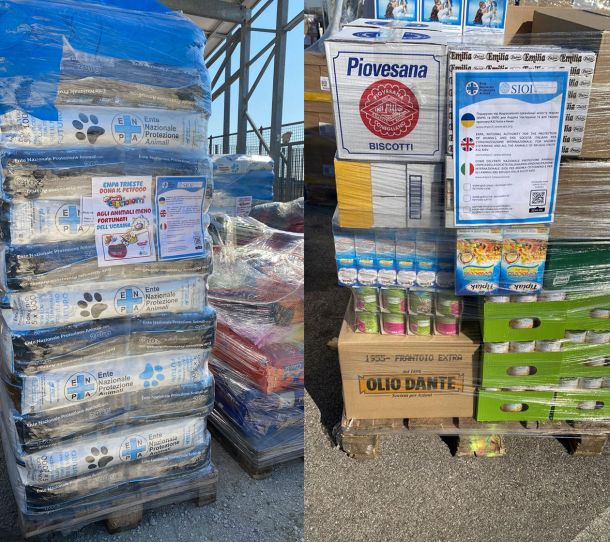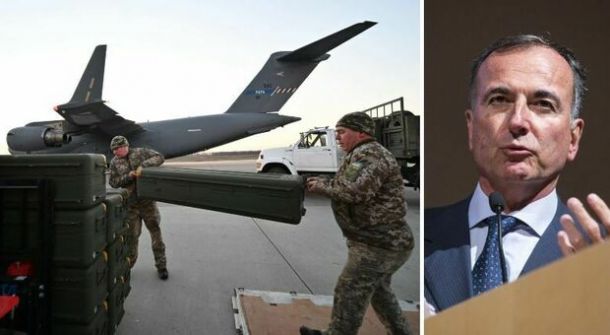- Home
- Archivio
- Politica internazionale
- My speech in Moscow at Russian Council
My speech in Moscow at Russian Council

The relations between the EU and Russia are one of the strategic axes of the European Union policy and, in the present globalized world, sometimes they find important and new grounds that require a stronger commitment from both parties.
There is no doubt that the EU and the Russian Federation have a mutual interest in strengthening a co-operation characterized by strategic and political – and not just economic – value.
The four traditional areas of cooperation developed over the last few years show that, in the light of the global financial and economic crisis, Europe’s interest to Russia and Russian interest to Europe are increasingly linked and even interdependent.
After ten years, however, the road maps to implement the four common spaces are facing numerous obstacles. The quality, more than the quantity – of EU-Russia cooperation is below its potential.
First of all, I think that common reflections and actions are essential to contribute to a comprehensive framework of security, to face asymmetric, diversified and obviously supranational threats. The stabilization of the crisis areas remains a shared goal, in the first place.
I have appreciated the Russian decision to contribute to the international effort to fight terrorism in Afghanistan and bring that country back to the Rule of Law and to the rebuilding of democratic institutions, as shown first of all by the Russian arrangements for the over-flight over the Russian territory. Similar efforts will be essential to face all together the serious danger of the Iranian nuclear proliferation for non-peaceful purposes.
I am sure that within the 5+1 Group as well as bilaterally, the Russian Federation will contribute positively to that commitment that President Obama has announced and that the European partners share, in view of negotiating a concrete solution in a short time.
Ever since I exercised the functions of European Commissioner for Justice and Home Affairs, the European Union and the Russian Federation have shared common objectives and effective actions against transnational crime. We all together committed ourselves to preventing and fighting terrorism, drug trafficking, cybercrime. New threats are emerging, and we are called to continue and intensify our common efforts, for example against transnational financial crimes.
It is evident, then, that a shared global security framework must include the best and most practical ways of working, and the most effective results for the NATO-RUSSIA Council, as well as a broad agreement on the progressive reduction of all nuclear arsenals, as again recently and appropriately restated by President Obama.
I am convinced that the cooperation on strategic and sensitive issues must be based on mutual trust, and that actions and visible results should prove it.
When I was Vice-President of the Commission, I successfully started a path of deep revision of the regime for the movement of persons between the EU and Russia. Later on, I signed the European Agreement on a new facilitated visa regime and I approved the start of negotiations towards their abolition in the future.
Unfortunately, a few years have passed without any significant results. I believe that the time has come for the EU to accelerate routes and procedures, but also to overcome any residual doubts and political uncertainties, which still prevent an organic and positive agreement that would have a very positive political, social and economic effect, for the Europeans and for the Russians as well.
Facilitating the movement of honest people not only encourages business, but brings people closer to each other, and helps to overcome mistrust and mutual misunderstandings especially through the young, when we are fighting crime all together.
The European Union has repeatedly confirmed the importance of the economic cooperation with the Russian Federation, and in my opinion that importance is progressively increasing.
The importance of cooperation concerns not only the energy sector, where, however, the European interest in strengthening its energy security unitary strategy for better and better cooperating with the main Eastern supplier of a large number of member countries is evident, – and that also through the progress in implementing large power plants along the East-West axis.
Actually I think that the entry of the Russian Federation to the World Trade Organization opens new and profitable opportunities for the international trade, helping to remove barriers to competitiveness and free trade, and consequently encouraging the increase of the European investments in Russia and the revival of the Russian investments in the EU countries.
The positive results experienced and enriched by my country in terms of trade and investment relations with the Russian Federation, may constitute a model that can encourage new and stronger forms and areas of economic cooperation.
I hope, in this regard, that Russia look with renewed surge to this possibility, towards a Europe strongly determined to emerge from the crisis also thanks to the intensification of international economic cooperation.
Europe and Russia have several other and most important areas where closer cooperation is possible and interesting: starting with the common strategic interest in stability and peace in the Caucasus region; the success of the Eastern Partnership, where, obviously, the Russian Federation plays a special role of primary importance; I stress the importance of a common action in the Quartet and in the other negotiating fora, so that finally a lasting, stable and right peace between Palestinians and Israelis is reached in the Middle East, originating a domino effect of positive reassurance and support to the not-negotiable reasons of Israel’s security and to the desire of the Palestinians to have their own state, in the new framework of transition to democracy and rule of law affecting countries and peoples of the area.
At the base of any perspective of collaboration, there is always a need for a better understanding and a stronger mutual trust.
It is on that aspect that we have to work again. We Europeans must do it ourselves, thanks to the efforts of countries such as (but not only) Italy, traditionally convinced that bringing Europe and Russia closer to one another implies a common benefit, and does not represent a concession granted from the former to the latter or vice versa.
You too, our Russian friends, should do the same, giving precedence to the actions and concrete gestures that we Europeans do expect from a trustworthy partner: I am thinking of institutional reforms inspired to transparency and the fight against corruption, following the lines shown by President Putin after his re-election. I think of the reduction of administrative barriers and tariffs for trade and investment, according to the rules established by the World Trade Organization, now binding on all parties.
As a consequence, we Europeans – who have considered for decades and still consider the euro-Atlantic relations as the main pillar of international relations -, we could take a leading and even stronger role in encouraging and supporting the forward-looking perspective expressed by President Obama about a new, positive season in the relations between the United States and the Russian Federation.
Challenges, threats and opportunities are now global, as it is the world in this 21st century.
The more we are able to globalize the answers, the better we will contribute to prospects for security and prosperity for our peoples.
The Europe born thanks to De Gasperi, Adenauer, Schuman, cannot and must not forget this duty and this responsibility.




